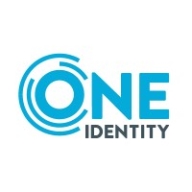

One Identity Safeguard and GitGuardian Platform compete in the cybersecurity sector, focusing on privileged access management and secrets detection, respectively. Based on the comparisons, One Identity Safeguard offers superior protocol support and session management, whereas GitGuardian excels in secrets detection and development integration.
Features: One Identity Safeguard enhances security with monitoring and controlling privileged access for RDP, SSH, and HTTP protocols, featuring real-time auditing and session replay capabilities. GitGuardian Platform specializes in automatic secrets detection, integrated with development environments, and ensures rapid remediation, though it lacks protocol support and session management offered by Safeguard.
Room for Improvement: One Identity Safeguard users suggest improvements in concurrent session support, VMware PCoIP integration, and appliance integration. GitGuardian could benefit from reducing false positives, better integration options, and enhanced historical scanning. Users also recommend more interface updates for Safeguard and improved detection accuracy for GitGuardian.
Ease of Deployment and Customer Service: One Identity Safeguard typically deploys on-premises, which limits flexibility compared to GitGuardian's cloud and on-premises support. Both have responsive customer service, though Safeguard users report some delays, while GitGuardian is appreciated for its quick, efficient support.
Pricing and ROI: One Identity Safeguard is perceived as expensive but provides significant ROI for large enterprises. Its price can be prohibitive for smaller organizations. GitGuardian's pricing is relatively high but justified by its effective secrets detection capabilities, offering a free tier for smaller teams to increase accessibility. GitGuardian shows ROI in risk mitigation, while Safeguard's value is seen in enhanced audit capabilities and security risk reduction over time.
I can certainly say that we have saved significant time and resources in terms of people and automation.
The majority of our incidents for critical detectors and important secret types are remediated automatically or proactively by developers through GitGuardian's notification system, without security team involvement.
Any PAM solution, when I deploy it well and customers use it, leads to a return on investment.
It effectively helps us with credentials security and has been performing satisfactorily.
I would rate their technical support a nine out of ten.
I would rate the technical support as excellent.
I sometimes need escalations to reach expertise.
Sometimes, I get a very helpful response and they address issues on a call.
When I have day-to-day incidents and problems, the response is good enough in terms of time and quality.
In terms of scalability, I would rate it around a ten out of ten, as it handles all the repositories and commit activity we have.
I would rate it a ten out of ten for scalability.
Currently, what GitGuardian Platform is doing works effectively.
The scalability of One Identity Safeguard is perfect, scoring ten out of ten.
We have a cluster of SPPs and a cluster of SPSs, and we can add a node to that cluster without much fuss.
I would rate it a nine out of ten for scalability.
We set up a lot of the repository, so GitGuardian is a required check.
The SaaS platform has experienced two significant moments of downtime or instability in the last six months, requiring notices and retrospectives.
I would rate the stability of the GitGuardian Platform as excellent with no downtimes.
I would rate it a nine out of ten for stability.
In terms of stability, I rate One Identity Safeguard nine to ten out of ten.
I encounter problems primarily with the failover procedure.
Another thing that would be good to see is some more metrics on the usage of the GitGuardian pre-push hooks.
The self-healing activity by developers isn't reflected in the analytics, requiring us to collect this data ourselves.
We are looking for better metrics and audit data, wanting more features such as knowing which users are creating the most secrets or committing the most secrets, what repository, what directory, and who is not checking in secrets.
For some configurations on the SPS side, if I need to make changes, such as for DNS servers, I must redeploy the machine.
There are many steps. We are still in the onboarding phase, and it seems very manual.
Another area for improvement could be the threat detection capabilities, like those seen in other PAM vendors.
Overall, the secret detection sector is expensive, but we are happy with the value we get.
It's fairly priced, as it performs a lot of analysis and is a valuable tool.
It is one of those where the more you buy, the cheaper it is.
It is cheaper than CyberArk.
It is more expensive than Secret Server but way less expensive than CyberArk.
One of the best features of the solution is the ability to use pre-push hooks.
A high number of our exposures are remediated by developers before security needs to step in, as the self-healing playbook process engages them automatically.
GitGuardian Platform performs the capability to detect secrets in real time exceptionally, as it activates from the commit and can detect it immediately.
The auditing and approval mechanisms are features we did not have before and are greatly appreciated.
I think One Identity should improve its documentation because it is vast and not clear, and clear documentation on implementing the solution would be advantageous for consultants.
Compared to other PAM solutions, it is easy to implement and use from an administrator's point of view.
| Product | Market Share (%) |
|---|---|
| GitGuardian Platform | 0.3% |
| One Identity Safeguard | 4.4% |
| Other | 95.3% |


| Company Size | Count |
|---|---|
| Small Business | 10 |
| Midsize Enterprise | 9 |
| Large Enterprise | 13 |
| Company Size | Count |
|---|---|
| Small Business | 18 |
| Midsize Enterprise | 12 |
| Large Enterprise | 19 |
GitGuardian is an advanced secrets security platform that strengthens Non-Human Identity security and ensures compliance with industry standards by detecting and managing secrets in development environments.
GitGuardian integrates Secrets Security and Secrets Observability, facilitating the detection of compromised secrets and managing legitimate secrets' lifecycle. Supporting over 450 types of secrets, the platform offers public monitoring for leaked data and employs honeytokens as an added defense. Trusted by over 600,000 developers, organizations such as Snowflake and ING rely on GitGuardian for robust secrets protection.
What features define GitGuardian?
What are the key benefits when evaluating GitGuardian?
In sectors like healthcare and telecommunications, GitGuardian is implemented for detecting and managing the exposure of sensitive information in code repositories. Teams benefit from its ability to integrate with platforms such as GitHub, allowing for immediate alerts and efficient remediation of security risks, enhancing application security by safeguarding operational environments.
One Identity Safeguard manages and monitors privileged access, enhancing security with features like automatic session recording, real-time monitoring, and credential rotation. It integrates seamlessly, supports compliance with audit trails, and improves operational efficiency across organizations. This robust platform significantly bolsters security protocols while controlling sensitive operations.
We monitor all Non-Human Identity Management (NHIM) reviews to prevent fraudulent reviews and keep review quality high. We do not post reviews by company employees or direct competitors. We validate each review for authenticity via cross-reference with LinkedIn, and personal follow-up with the reviewer when necessary.